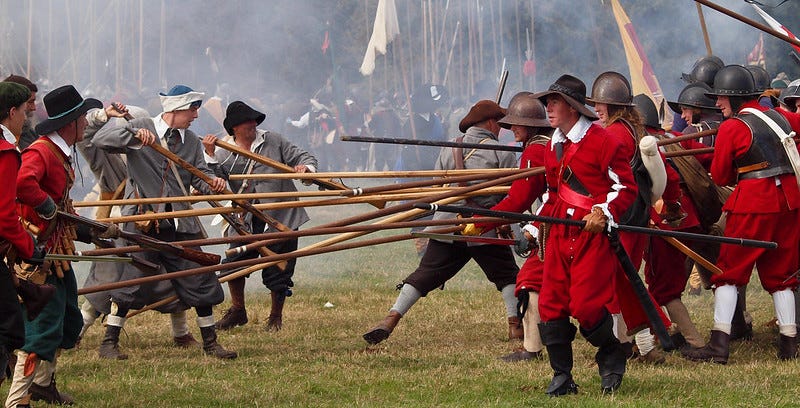The State Of English Civil War Education
The very state of it
You probably know who Oliver Cromwell was. Not when he lived, maybe, or what his wars were all about, but you will know his name anyway because the Irish curse it to this day. Also because there are dozens of books and a major motion picture about him.
Even the name of his conflicts has nowhere near the same “brand recognition” as Cromwell. According to…



